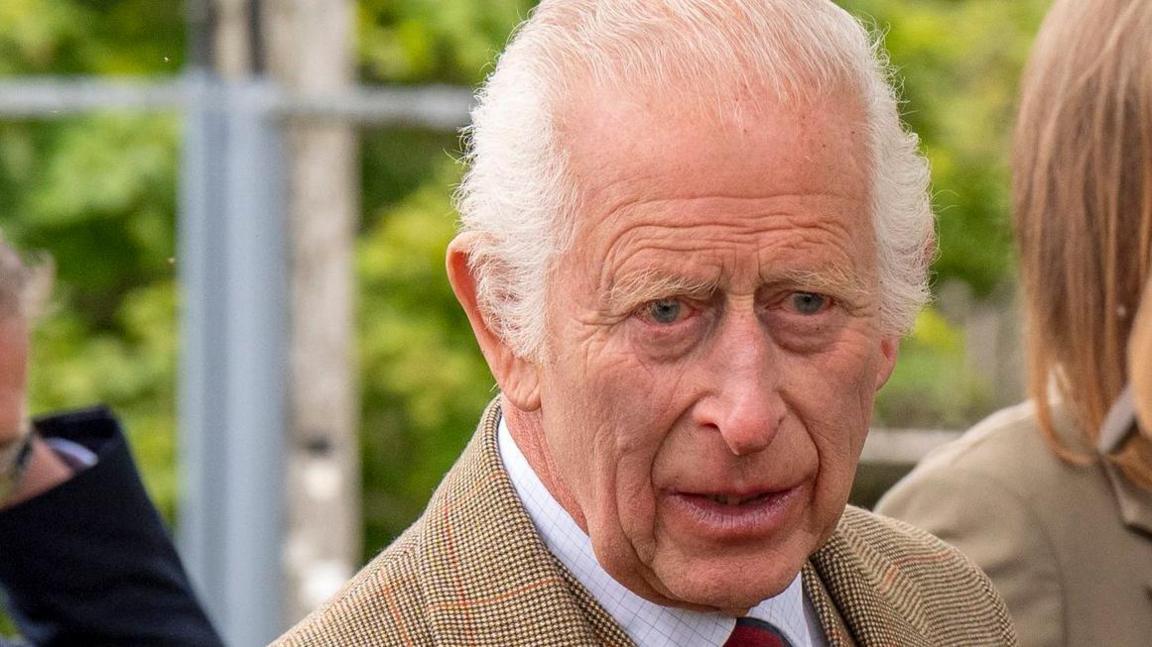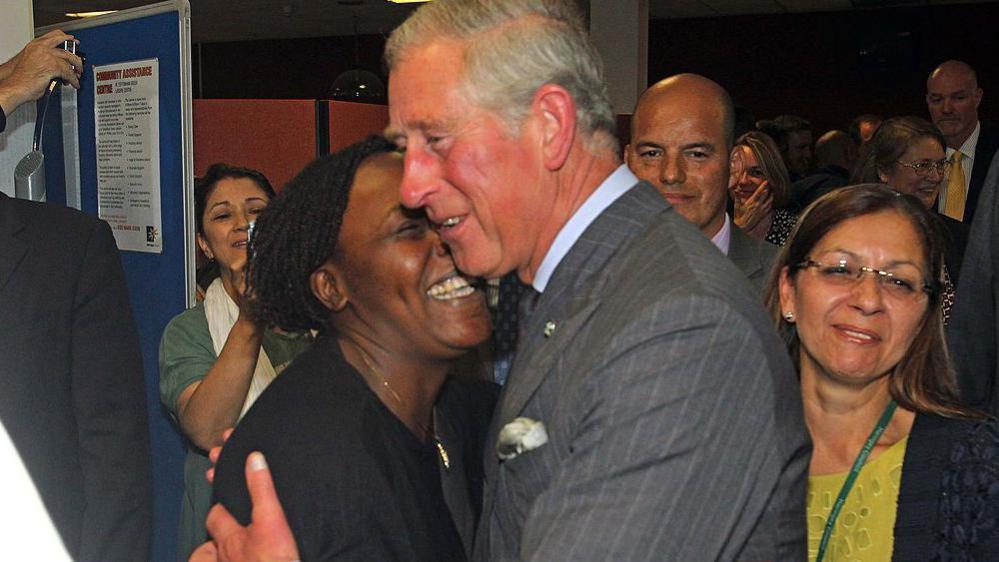King not paying visits yet to riot-hit areas

King Charles has been staying in Scotland this week
- Published
King Charles is not currently expected to make visits or official statements about the wave of rioting, at least until after the the initial days of unrest have calmed down.
According to royal sources, he is being kept updated daily about the public disorder.
But a royal intervention is so far not imminent, with a response to the protests being left to the government, rather than a monarch who is expected to stay out of politics.
It follows the precedent of the late Queen Elizabeth who did not send any messages during the rioting of 2011.
In such previous cases, royal visits to trouble spots have tended to follow after the wave of unrest and violence has settled.
However, the lack of an immediate public response to the riots from the King has been criticised as a "cowardly absence" by the anti-monarchy group, Republic.
"We're told the monarch is supposed to be a figurehead who unites the nation, yet when the nation is in crisis he's nowhere to be seen," said its leader, Graham Smith.
That was rejected by historian and author Sir Anthony Seldon, who said: "Now is not the right time for the King to become involved.
"He is head of state, and it’s appropriate that while the crisis is going on, the head of government, the prime minister, handles the crisis management and says what is needed to be said.
"The time for the King to speak, if at all, is when everything has calmed down again. The issues that have led the riots are not going to go away quickly. We need to hear his considered thoughts then about societal harmony," Sir Anthony told the BBC.
Historian Kate Williams, on Times Radio, said the King should speak out now to promote community cohesion.
"This would be a moment for the King to talk about multiculturalism, the Commonwealth, people coming together, and I think that if I were advising him I would suggest making that statement sooner rather than later," she said.
But constitutional expert Craig Prescott, in a social media post, said it would be "problematic" for the King to intervene now.
"In general, the monarchy does not comment on current political events," he said, suggesting any visits should come later, helping with efforts to rebuild community relations.
Why are there riots in the UK?
- Published9 August 2024
The real story of the news website accused of fuelling riots
- Published8 August 2024
King Charles, who has been receiving cancer treatment this year, has been in Scotland, where he is expected to spend much of the summer.
The message from Buckingham Palace has been not to expect any immediate visits or statements about the outbreaks of disorder, with a political response being more appropriate for such unfolding events.
The monarch, as head of state, is expected to stay out of political controversy or anything that could be seen as party political.
The King did issue a statement in the wake of the deaths in Southport, saying he was "profoundly shocked to hear of the utterly horrific incident".
But he has stayed out of commenting on the unrest that has followed.

The then Prince Charles visited Tottenham in the wake of the 2011 riots
There is also a practical sensitivity about royal visits to trouble spots, in case they added to the pressures on emergency services on the ground, particularly when events are still changing and unpredictable.
That being said, monarchs speak on the advice of ministers - and any future involvement by the King is said to be open to review, and the situation could change quickly depending on discussions with the government.
The King has long been involved in building bridges between different religions and cultures, describing Britain as a "community of communities". It has been one of his most long-standing themes.
He was involved in supporting community projects in Tottenham in north London, and other areas hit by the 2011 riots, paying a series of visits.
The King is said to be privately engaged in efforts to build cross-community links and it is likely that once the disorder has calmed down, there will be visits and attempts to offer reassurance to troubled areas.